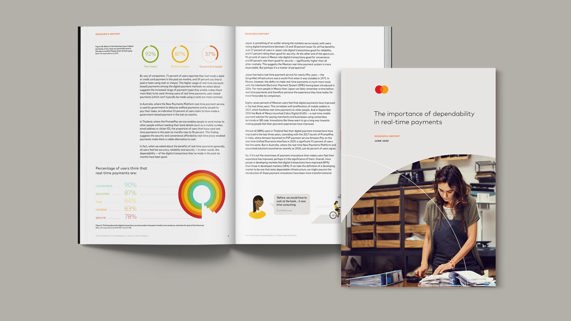The importance of dependability in real-time services
June 1, 2020 | By Andrew BuckleyAs a leading global provider of real-time payment infrastructures and applications, we know that people depend on secure, reliable access to their money
We define a dependable service as one that is both trustworthy and reliable; that’s always available to those that use and rely on it. It’s why we invest just as much in the security and resilience of our real-time payment solutions as we do in providing rich, innovative functionality.
To help us understand just how vital dependable real-time payment services are, we put a short survey to people who are currently using them to transact with businesses, governments, and other people in six markets: the U.K., Japan, Australia, Thailand, India, and Mexico.
Our objective was to identify current behaviours and perceptions of the dependability of real-time payments; to understand current levels of awareness of the local real-time payment scheme, and what impact increasing awareness would have on perceived dependability; to understand how important real-time payments is compared to other dependable services/instant gratification categories; and to uncover levels of concern and impact on payment behaviours if real-time payments were no longer available.
We learned that people’s lives had been enriched by the introduction of real-time payments — that they value them for their convenience, accuracy and speed. These benefits make them a viable alternative to cash in a range of scenarios. Three quarters of users in the markets we surveyed agree they would like all digital payments to be real-time. We also learned that security and resilience of real-time payment services are integral to this value proposition — users’ biggest frustrations when transacting digitally include concern over the use of their personal details and data, when transactions take too long to complete, and when the digital payments service they use goes down.
People consider real-time payments more important than other dependable services categories such as the internet, next-day delivery, and utilities. They are considered significantly more important in developing markets. Real-time payments are also essential to entrepreneurs’ and small business owners’ success.
Growing awareness of real-time payments among users living in developing markets and notably Japan is certain to improve people’s confidence in digital transactions, and would make them likely to perform more of them. Overall, banks are the most trusted sources of information on real-time payment services, but there is an opportunity for technology providers to build a credible narrative in developing markets. Social media will become an increasingly important tool in driving awareness of real-time payment services over time, and more so in developing markets.
If real-time payments weren’t available — if the service went down or was discontinued — many people would be concerned about a delay in receiving their salary, benefits or tax rebates. People in developed markets would be most concerned about paying their bills, while people in developing economies would worry about transactions involving family or friends. In developing markets, where digital alternatives are limited, people would most likely return to cash or cheque. And they would consider it a detriment to their businesses.
Our findings reiterate something we have long known: that real-time payment services must be both trustworthy and reliable in order for people to use and benefit from them. Proving their dependability is a key driver for trust.
Mastercard’s real-time payment infrastructure and applications, available as a fully managed service, is secure and reliable. It keeps pace with the speed of life for the people, businesses, governments and financial institutions that depend on it.
